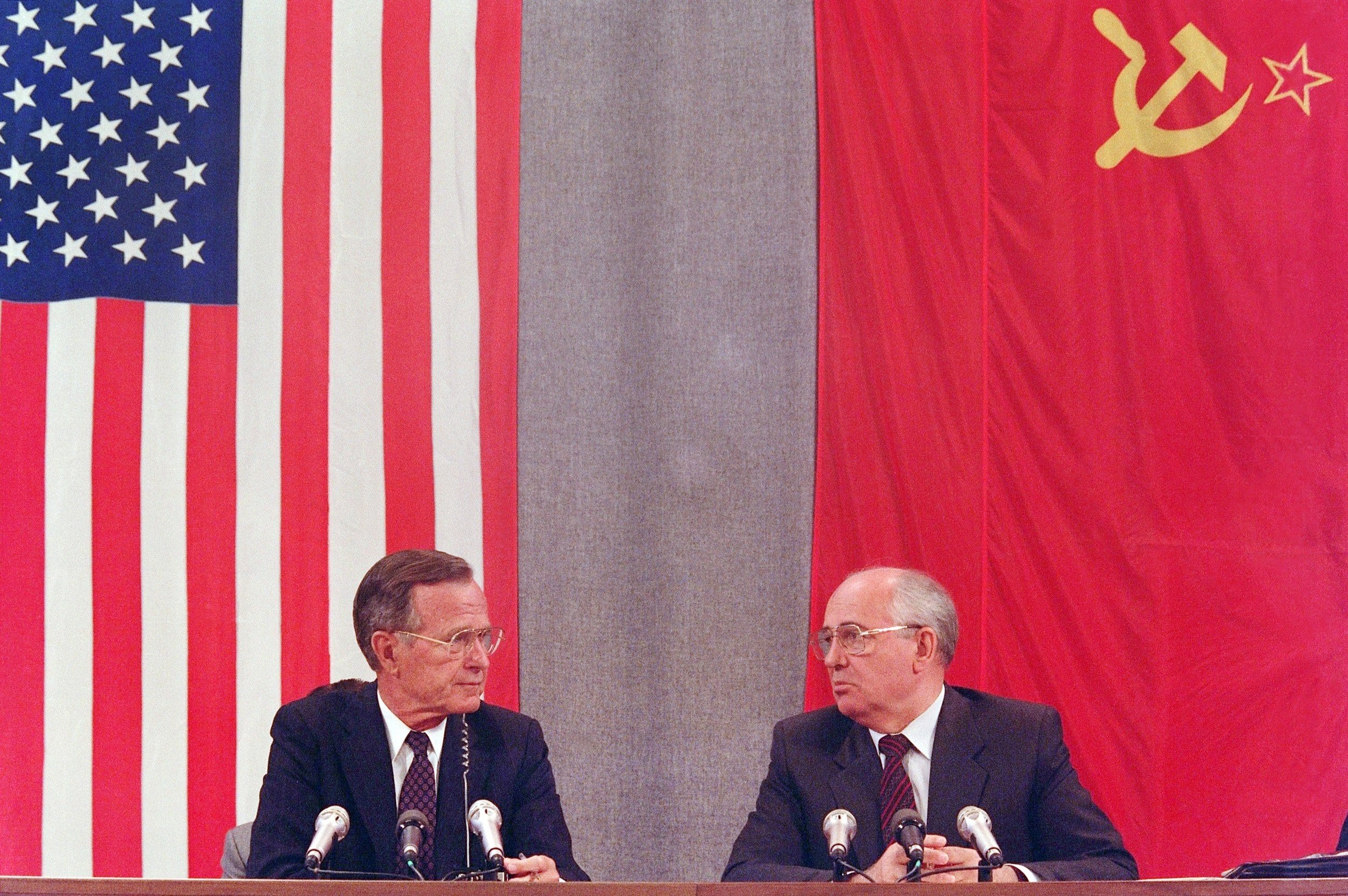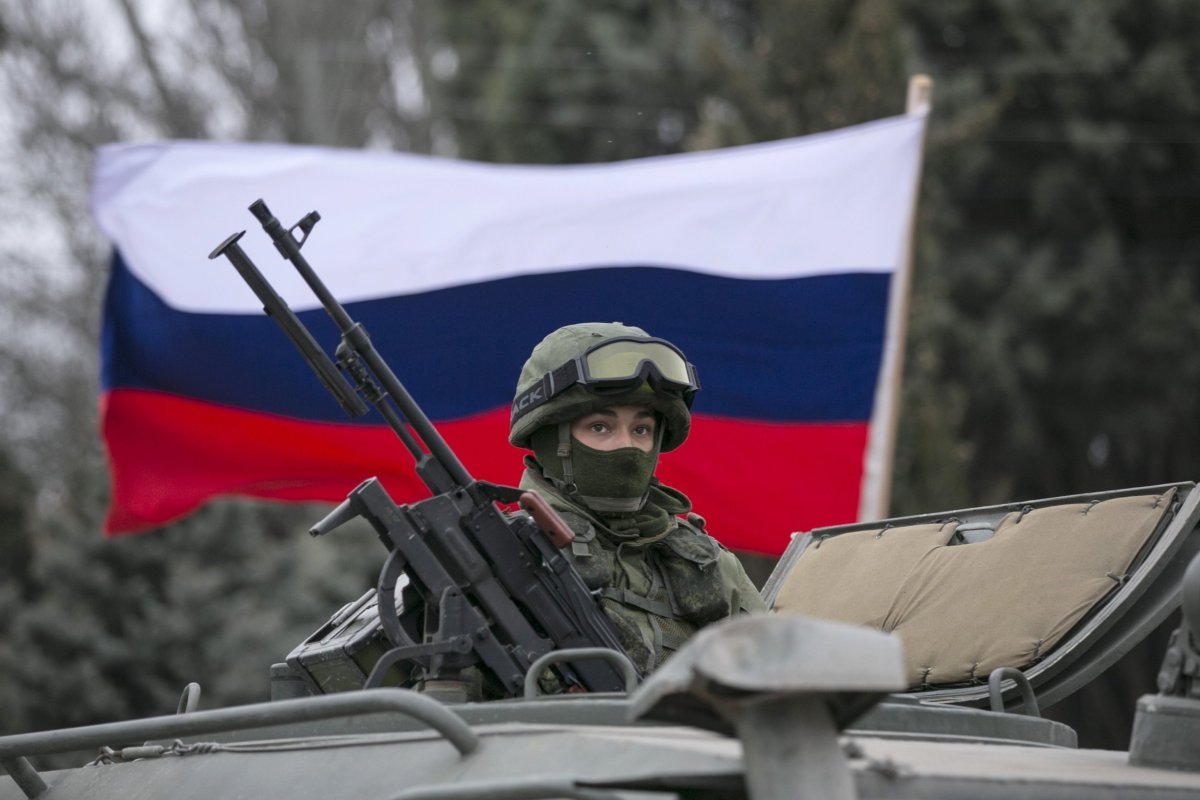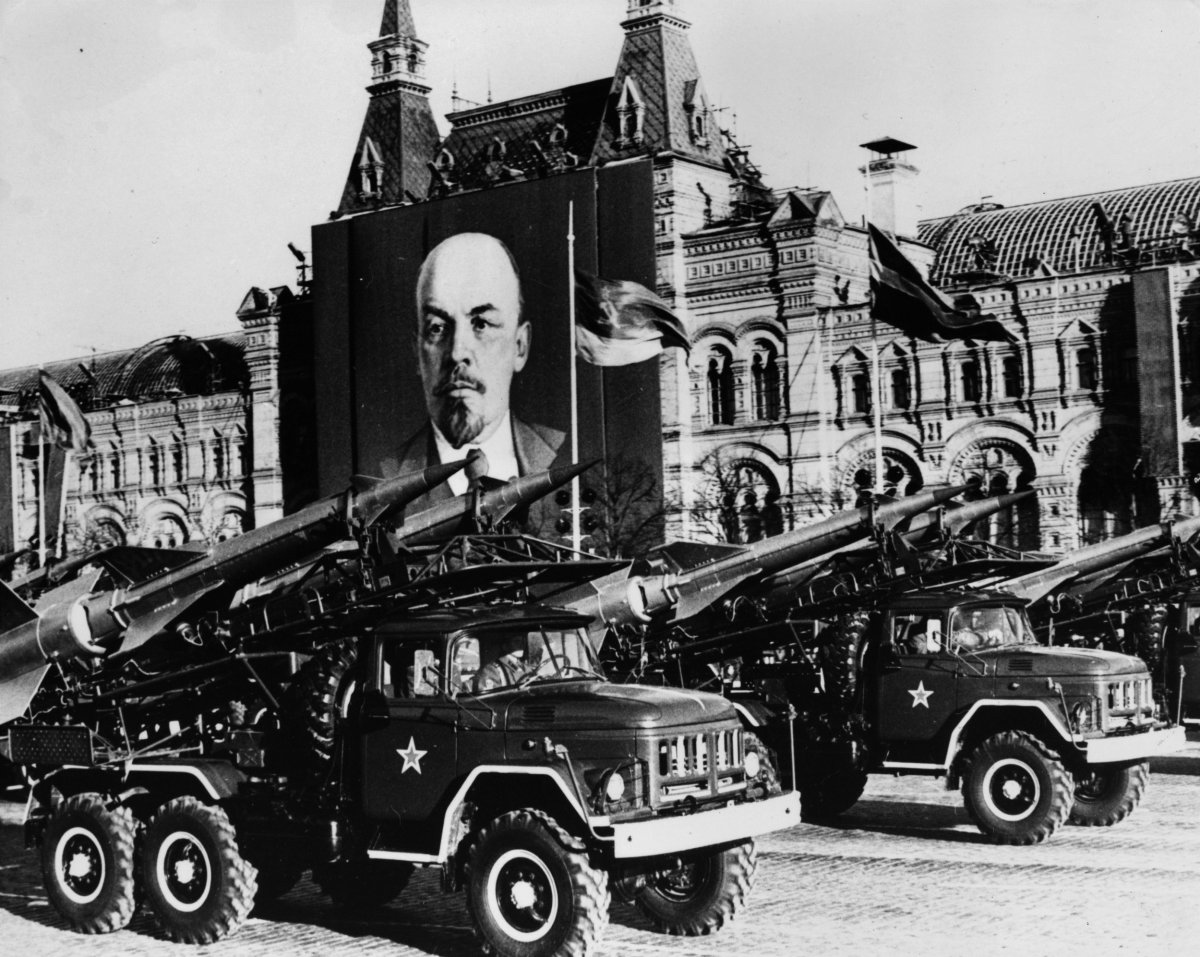
Since Russia invaded Ukraine to annex Crimea back in 2014, tensions between the West and the Kremlin have steadily worsened amid a series of events that are causing some on both sides and in the media to declare that a "new Cold War" is underway.
It's easy to see why. To name but a few of the reasons: Russian and NATO war games; the Kremlin's involvement in the Syrian war; an emerging arms race between Russia and the U.S.; suspicious deaths of wealthy Russian businessmen in the West; the Skripal poisonings; Russia's cyber warfare against Western allies; the list goes on.
But is this really a new Cold War? Or even an extension of the old one the world thought had ended with the collapse of the Soviet Union in 1991? Respected Cold War historians aren't so sure.
Jussi Hanhimäki, professor of international history at the Graduate Institute Geneva, told Newsweek we "evoke the Cold War in large part because 'our' era lacks a name."
"Indeed, the rampant use of 'the new Cold War' (and not only for US-Russia relations but on occasion for Sino-American relations as well) is in part driven by a kind of nostalgia for an era that seemed straightforward and simple in contrast to the current age of uncertainty and seeming disarray," Hanhimäki said.
"I do not think the analogy to the Cold War is helpful," Melvyn P. Leffler, Edward R. Stettinius Jr. professor in the history department at the University of Virginia, told Newsweek. "I think this is more of a typical geopolitical conflict."
Arne Westad, S.T. Lee Professor of U.S.-Asia Relations at Harvard University, told Newsweek that "not all conflicts are 'Cold Wars' (meaning a particular type of conflict that is highly ideological, long-lasting, bi-polar, and absolute)."
"What we are seeing today is much more reminiscent of Europe in the 19th century—different powers conflicting over power, influence, and resources in ever-changing constellations," said Westad, who recently wrote in depth on the issue for Foreign Affairs.
At the heart of skepticism over the idea we are living in a new Cold War period, akin that which lasted for decades after the end of WWII in 1945, is the lack of an all-encompassing ideological battle between two incompatible sets of ideals.
During the reconstruction of a war-torn world, U.S. liberal capitalism fought against Soviet communism for influence, mostly through espionage and proxy wars at the geographic borders of each ideological empire, such as in Korea during the 1950s.
"The Cold War was characterized by the intersection of geopolitical and ideological sectors," Leffler said. "Fear of the Soviet Union stemmed a lot from the attractiveness of communist ideology and state planning after World War II.
"Most of Europe hungered for reform and communist parties had substantial appeal—communist parties that were linked to Moscow but that had considerable indigenous support in places like France and Italy.
"Moreover, Marxist-Leninist ideology had great appeal to revolutionary nationalist leaders in Asia and Africa. Marxist-Leninist ideology blamed their backwardness on the exploitation of imperialist powers, and national planning infused hope of rapid modernization."
Leffler said that these days, Putin's Russia "has little of that ideological appeal, although his model of authoritarianism musters growing support in some places."
"Yet even the geopolitical power of Putin's Russia is miniscule compared to the power of the USSR after World War II," Leffler said. "Although devastated by the war, Soviet armies dominated half of Europe as a result of their role in defeating the Nazis. Hence nowadays neither the geopolitical power nor the ideological appeal of Russia is anything comparable to the USSR in the heyday of the Cold War. The analogy is misleading."

Hal Brands is Henry A. Kissinger Distinguished Professor of Global Affairs at the Johns Hopkins University School of Advanced International Studies. He believes we are in the "third stage" of a debate about calling what's happening today a new Cold War.
In the first stage after Crimea, Brands told Newsweek, the world reached for a familiar analogy and landed on the Cold War. The second stage was people "pointing out all the ways in which the current situation is undeniably different from the Cold War."
"Now, in the third stage, people can actually start thinking more seriously about the similarities and the differences. And I think there are a number of both," Brands said.
Like Leffler, Brands pointed at that Putin's Russia is nowhere near the geopolitical competitor the Soviet Union once was. "It really is a shell of its former self. And that's a good thing," he said.
But, although it's weaker than it once was, Brands said there is still a strong ideological element to what's going on between the U.S. and Russia, making it comparable in part to the Cold War.
"I think there is an ideological dimension to the conflict in that the Russians very much see the promotion of democratic institutions and liberal ideals as a threat to their own security and stability, and are pushing back against that by trying to undermine democratic systems of government in the United States, Europe, and elsewhere," Brands said.
"The mistake that people make in rejecting a Cold War analogy or saying it's more like this than that is it is a geopolitical competition, one that's about power and influence, but there is an ideological dimension to it."
He continued: "I think authoritarianism is an ideology in its own right just as liberalism is an ideology. And Putin believes that strong, centralized rule is critical to preventing Russia from collapsing into the weakness it experienced in the 1990s and to making it a respected player on the international stage once again.
"Those things are inseparable for him. And so I think it's a little bit of a false dichotomy to say you either have to be geopolitically-minded or ideologically-minded, because these things often go hand in hand."

There is also a comparison to be made with Russian tactics during the Cold War. Disinformation is weaponized in much the same way, for example, nowadays through its state media such as RT and Sputnik.
"That's the muscle memory of a lot of the Russian security establishment," Brands said. "Those are the things they remember how to do at a personal level or an institutional level. So it's not that surprising that they're resorting to those sorts of measures in the current context of the competition."
Even if comparisons between the Cold War and now are overdone, Brands said there is a lot to learn from the period. Most importantly, how to de-escalate a crisis—especially a nuclear one.
"There are certainly things we can learn with respect to how you blend a competitive strategy for dealing with a disruptive power while also building in mechanisms to make sure that things don't get out of hand," Brands said.
And with Putin unveiling a new generation of weapons of mass destruction, including the "Satan 2" hypersonic intercontinental ballistic missile capable of carrying a catastrophic nuclear payload, those lessons are worth remembering.
Uncommon Knowledge
Newsweek is committed to challenging conventional wisdom and finding connections in the search for common ground.
Newsweek is committed to challenging conventional wisdom and finding connections in the search for common ground.
About the writer
Shane Croucher is a Senior Editor based in London, UK. He oversees the My Turn team. He has previously overseen ... Read more
To read how Newsweek uses AI as a newsroom tool, Click here.








